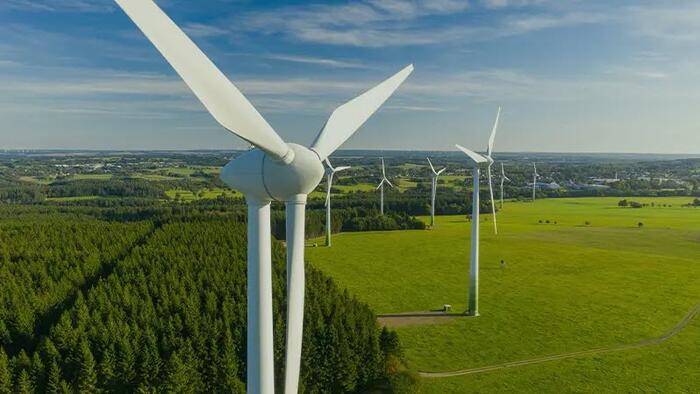Business
Germany’s Steel Industry Faces Crisis Amid Rising Energy Costs

German Chancellor Friedrich Merz convened a summit on Thursday, bringing together leading executives from the German steel industry to address a pressing crisis. Since reaching its peak in 2018, Germany’s steel production has plummeted by approximately 25 percent. The sector faces mounting challenges, including soaring energy prices, fierce competition from nations like China and India, and the European Union’s push for “green steel,” a variant that lacks demand in the global market.
This summit marks the latest government-led effort to find solutions for an industry grappling with one of its most severe downturns in decades. While the meeting aims to foster collaboration among industry representatives, unions, and policymakers, skepticism remains regarding the effectiveness of such discussions, which have often resulted in insufficient solutions.
The central topic of the meeting revolved around the contentious issue of industrial electricity pricing. Despite some energy-intensive companies receiving partial relief, the current rates are inadequate for maintaining competitive standing internationally. German industrial electricity prices have remained around 16–17 ct/kWh for several months, significantly higher than the prices faced by competitors in the United States and France, where energy costs benefit from the use of nuclear power. This disparity is indicative of the challenges posed by the transition to greener energy sources, contributing to job losses and declining local tax revenues.
Economic Minister Katerina Reiche suggested that state electricity subsidies for energy-intensive industries—including steel, chemicals, and paper—could be implemented starting on January 1, 2026. The German Economic Institute estimates the potential cost of this scaled-back industrial power scheme at around €4 billion annually. However, two years ago, discussions indicated a requirement for up to €50 billion. Ultimately, the actual cost may settle in the low double-digit billions, with taxpayers expected to bear the financial burden, either directly or through debt-financed programs.
The European Commission currently poses significant hurdles to the subsidy plan, maintaining strict limits on state aid, allowing support for only 50 percent of energy consumption for a maximum of three years. The rationale behind the Commission’s opposition remains unclear, but it poses a major obstacle to the proposed multibillion-euro subsidy.
The increasing frequency of these summits highlights a troubling trend: Germany’s transition to a climate-neutral economy appears to be failing. As industry leaders express frustration over regulatory policies, including the controversial Supply Chain Act, they view these measures as burdensome obstacles rather than supportive frameworks.
The implications of this crisis extend beyond immediate financial concerns. The requirement for German companies to create 325,000 additional positions over the past three years—primarily to meet bureaucratic demands rather than drive production or innovation—illustrates the growing inefficiency within the system.
The intervention of the state to subsidize industrial electricity is a stark indication of the failure of the energy transition. The current structure renders the competitive production of energy-intensive goods nearly impossible. With the absence of affordable Russian gas and the decommissioning of nuclear plants, other countries, particularly the U.S., are poised to capture industrial production, benefiting from lower energy costs and deregulation policies established during previous administrations.
The reliance on a subsidized electricity price signifies a troubling reality: a patchwork of subsidies and exemptions cannot rectify the fundamental issues plaguing the energy transition. The political climate makes it politically unfeasible to revert to affordable Russian gas, leaving industries facing the prospect of continued reliance on expensive imported liquefied natural gas from the U.S.
As the crisis deepens, it becomes increasingly vital for stakeholders to engage in candid discussions about the long-term implications of decades of subsidies and the misallocation of resources. Without a clear, sustainable solution, Germany’s industrial landscape may face irrevocable changes, prompting a broader reevaluation of its economic strategies and energy policies.
-

 Science4 weeks ago
Science4 weeks agoIROS 2025 to Showcase Cutting-Edge Robotics Innovations in China
-

 Lifestyle4 weeks ago
Lifestyle4 weeks agoStone Island’s Logo Worn by Extremists Sparks Brand Dilemma
-

 Politics3 weeks ago
Politics3 weeks agoJudge Considers Dismissal of Chelsea Housing Case Citing AI Flaws
-

 World4 weeks ago
World4 weeks agoBravo Company Veterans Honored with Bronze Medals After 56 Years
-

 Health4 weeks ago
Health4 weeks agoStartup Liberate Bio Secures $31 Million for Next-Gen Therapies
-

 Science4 weeks ago
Science4 weeks agoArizona State University Transforms Programming Education Approach
-

 Health4 weeks ago
Health4 weeks agoTop Hyaluronic Acid Serums for Radiant Skin in 2025
-

 Sports4 weeks ago
Sports4 weeks agoMel Kiper Jr. Reveals Top 25 Prospects for 2026 NFL Draft
-

 Lifestyle4 weeks ago
Lifestyle4 weeks agoMary Morgan Jackson Crowned Little Miss National Peanut Festival 2025
-

 World4 weeks ago
World4 weeks agoHoneywell Predicts Record Demand for Business Jets Over Next Decade
-

 Sports4 weeks ago
Sports4 weeks agoYamamoto’s Mastery Leads Dodgers to 5-1 Victory in NLCS Game 2
-

 Top Stories4 weeks ago
Top Stories4 weeks agoIndonesia Suspends 27,000 Bank Accounts in Online Gambling Crackdown









